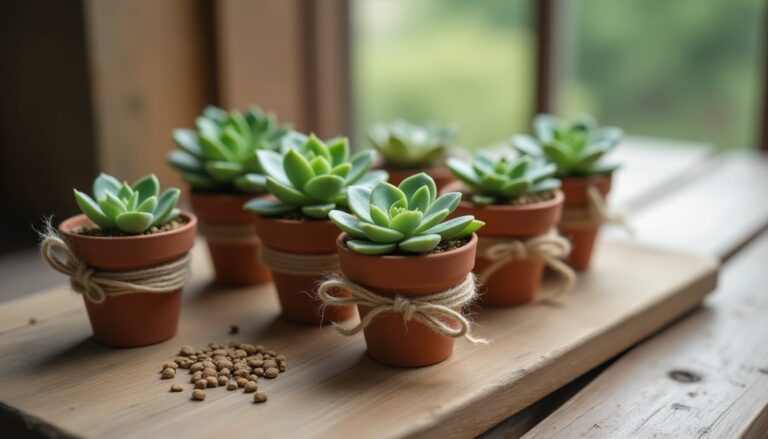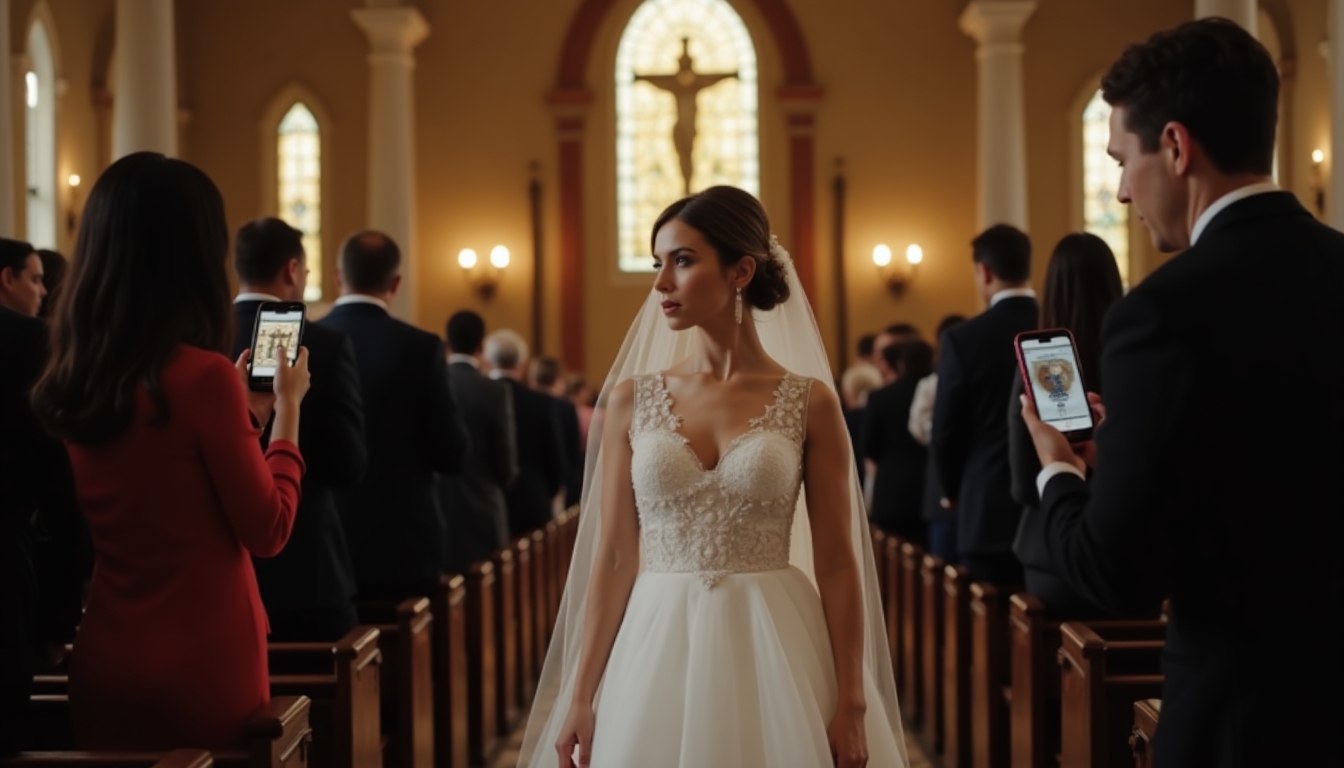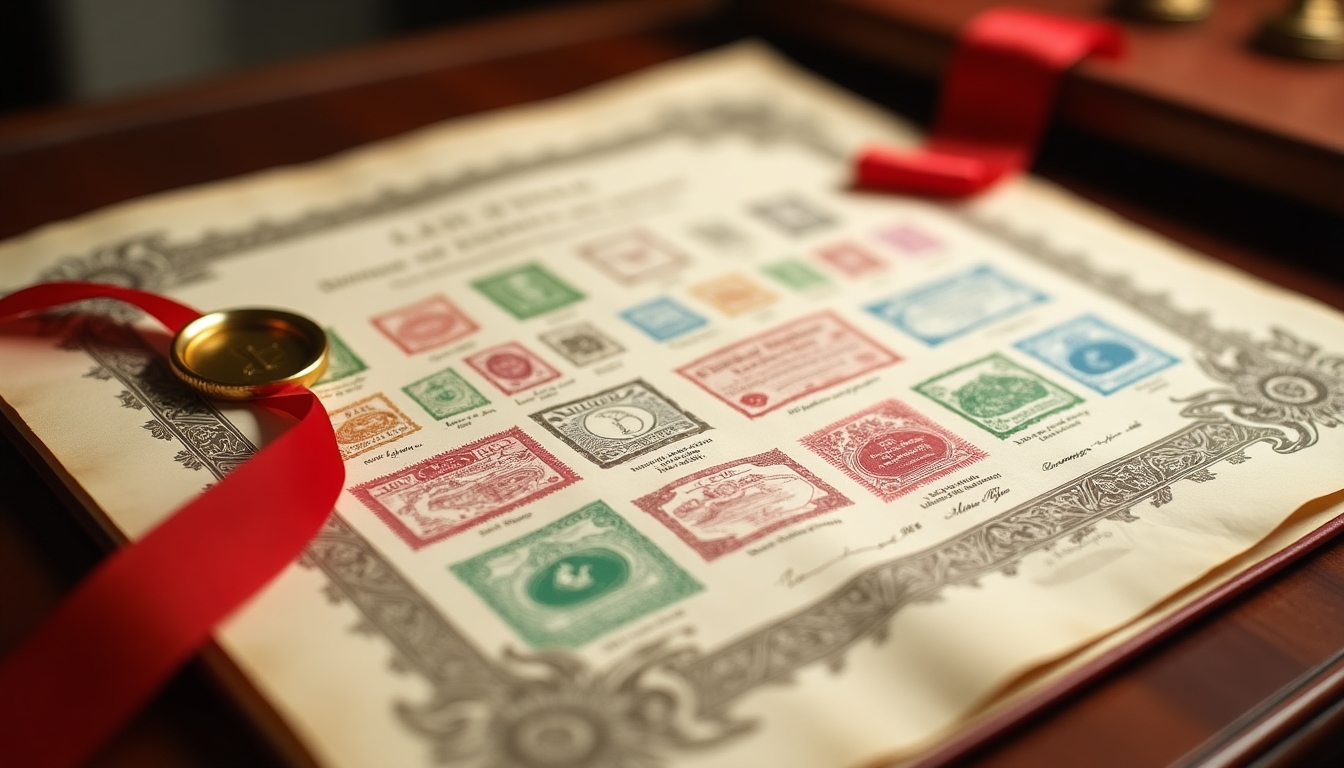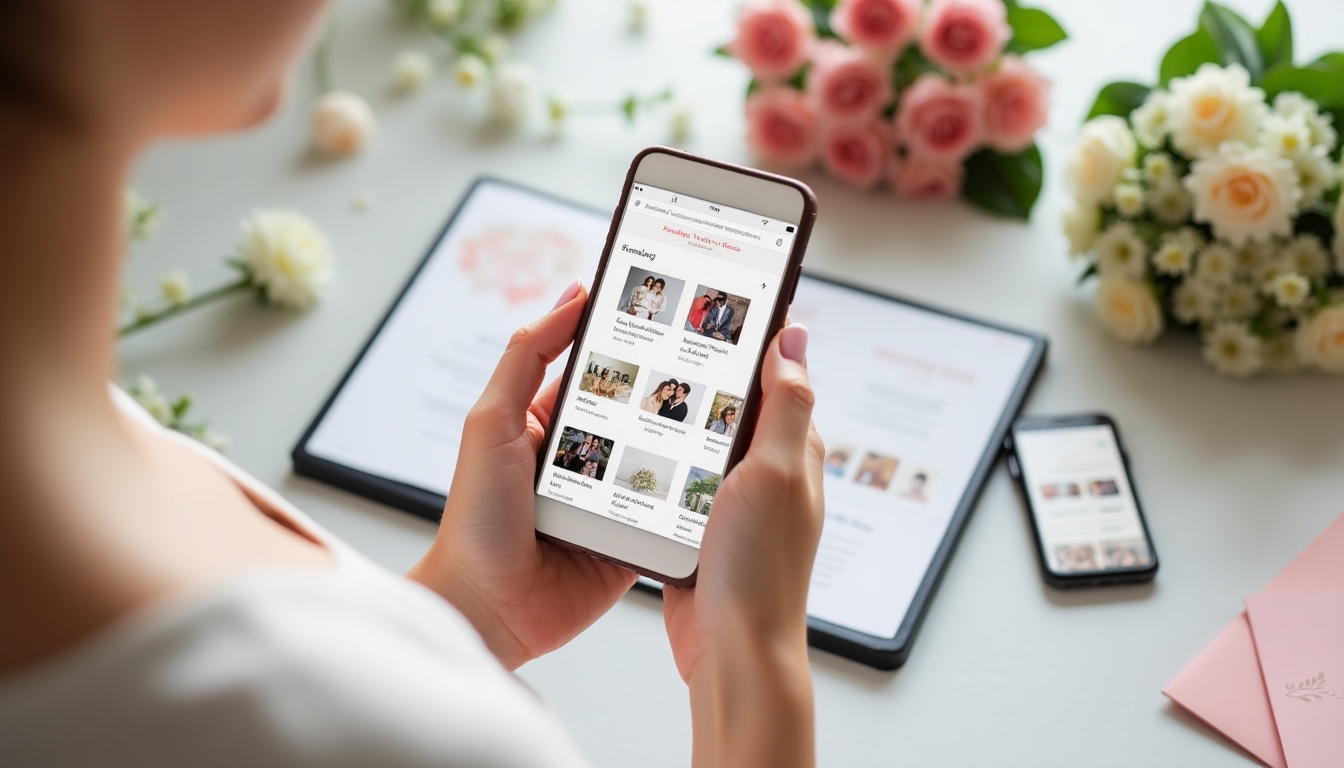Wedding favors often end up forgotten or discarded, creating unnecessary waste and expense for couples planning their special day.
Sustainable wedding favors provide an opportunity to share meaningful gifts while minimizing environmental impact and ensuring guests receive something they’ll actually appreciate and use.
This guide explores eco-friendly favor options that combine thoughtfulness with practicality, helping you make environmentally conscious choices your guests will treasure.
Plant-Based Wedding Favors
- Potted succulents or small plants
- Seed packets with seasonal flowers
- Herb growing kits
- Tree saplings in biodegradable pots
Edible Sustainable Favors
- Local honey in glass jars
- Fair-trade coffee beans
- Organic tea blends
- Locally sourced jam or preserves
- Artisanal chocolate bars in compostable packaging
Reusable Items
- Canvas tote bags
- Glass water bottles
- Bamboo utensil sets
- Beeswax food wraps
- Stainless steel straws with cleaning brushes
Handcrafted Eco-Friendly Options
- Natural soy candles
- Handmade soap bars
- Organic bath bombs
- Wooden coasters
- Natural fiber dish towels
Charitable Donations
Consider making donations to environmental organizations in guests’ names, providing cards explaining the positive impact of their gift.
Packaging Tips
- Use recycled paper or fabric wrapping
- Choose biodegradable containers
- Avoid plastic packaging
- Include care instructions on recycled paper
Local Sourcing
Partner with local artisans and businesses to reduce transportation emissions and support your community.
Seasonal Considerations
| Season | Recommended Favors |
|---|---|
| Spring | Wildflower seeds, herb plants |
| Summer | Organic sunscreen, reusable water bottles |
| Fall | Local apple butter, maple syrup |
| Winter | Fair-trade hot chocolate, wool mittens |
Making Your Selection
Choose favors that align with your wedding theme while considering your guests’ lifestyles and practical needs.
Creating Lasting Memories
Select sustainable favors that tell your story and reflect your values, creating meaningful keepsakes your guests will cherish.
Budget Considerations
While sustainable options may initially seem more expensive, they often provide better value through quality and longevity. Consider these cost-saving strategies:
- Buy in bulk from sustainable suppliers
- DIY where possible
- Choose dual-purpose items that can serve as place cards
- Partner with local vendors for potential discounts
Guest Experience
Enhance the presentation of your sustainable favors to create memorable moments:
- Create display stations that educate guests about environmental impact
- Include personalized thank-you notes on seed paper
- Offer choice between 2-3 sustainable options
- Incorporate favors into the wedding decor
Storage and Transportation
Before the Wedding
- Store perishable items properly
- Keep plant-based favors in appropriate conditions
- Arrange local pickup when possible
During the Event
- Set up proper display areas with adequate ventilation
- Protect delicate items from weather conditions
- Have backup storage solutions ready
A Gift for the Future
Sustainable wedding favors represent more than just a token of appreciation – they embody a commitment to environmental stewardship and conscious consumption. By choosing eco-friendly options, couples can extend their love story to include care for the planet while providing guests with meaningful mementos that will be treasured for years to come.
Remember that the most sustainable favor is one that brings joy and utility to its recipient while minimizing its environmental footprint. With thoughtful selection and presentation, your wedding favors can inspire guests to embrace more sustainable choices in their own lives.
FAQs
- What makes a wedding favor sustainable?
A wedding favor is considered sustainable when it’s made from eco-friendly materials, has minimal packaging, can be reused or recycled, and ideally has a low carbon footprint in its production and transportation. - Which edible wedding favors are both sustainable and popular with guests?
Locally sourced honey, organic jam, fair-trade coffee beans, homemade cookies in reusable glass jars, or locally produced wine are highly appreciated sustainable edible favors. - How can I incorporate plants as sustainable wedding favors?
Offer small potted herbs, succulents, seed packets, or air plants in biodegradable pots. These living gifts can grow and remind guests of your special day for years to come. - What are some eco-friendly packaging options for wedding favors?
Use recyclable kraft paper boxes, biodegradable bags, reusable cloth pouches, or repurposed glass jars. Avoid plastic packaging and opt for natural materials like bamboo or recycled paper. - Can charitable donations work as sustainable wedding favors?
Yes, making donations to environmental or social causes in guests’ names is a meaningful and zero-waste alternative to traditional favors. Provide cards explaining the charitable contribution. - What are practical sustainable favors that guests won’t leave behind?
Reusable items like bamboo utensil sets, organic cotton tote bags, beeswax wraps, or stainless steel straws are practical items guests can use regularly. - How can I ensure my sustainable favors align with my wedding theme?
Choose favors that complement your wedding colors and style through natural decorative elements, appropriate packaging, and personalized tags made from recycled materials. - What’s the average cost range for sustainable wedding favors?
Sustainable wedding favors typically range from $3-15 per guest, though costs can vary based on the item chosen and quantity ordered. DIY options can help reduce costs while maintaining sustainability. - Are there any sustainable favor options that double as place cards?
Yes, small potted plants, personalized seed packets, or tagged mason jars with edible treats can serve both as place cards and sustainable favors. - How far in advance should I order sustainable wedding favors?
Order non-perishable sustainable favors 2-3 months before the wedding. For perishable items like plants or edibles, coordinate delivery or preparation 1-2 weeks before the event.






